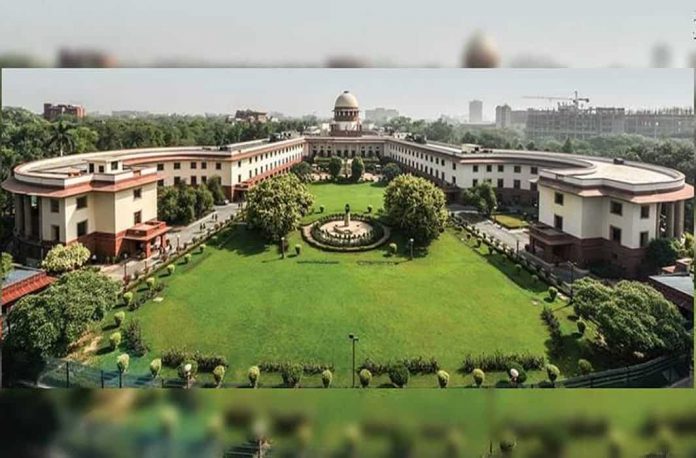In order to break deadlock in 5-judge bench decisions, CJI has been asked to constitute a larger bench to adjudicate the issue
New Delhi: A five-judge Constitution bench of the Supreme Court today held that there can be sub-classification within Scheduled Caste and Scheduled Tribe for granting them reservation, while disagreeing with an earlier judgement of a five-judge Constitution bench of the Supreme Court.
The bench comprising Justices Arun Mishra, Indira Banerjee, Vineet Saran, M.R. Shah and Aniruddha Bose said that states can make laws to give preferential treatment to specific castes within the Scheduled Castes.
In view of the difference of opinion between two five-judge constitution benches, the issue is to be decided by a larger bench and the bench has asked the Chief Justice to constitute a larger bench to adjudicate the issue.
The order has been passed in an appeal preferred by the State of Punjab against a 2010 judgment of the Punjab and Haryana High Court. The High Court struck down Section 4(5) of the Punjab Scheduled Castes and Backward Classes (Reservation in Services) Act, 2006 as unconstitutional. Section 4(5) of the Act provides for ‘first preference’ to the Balmikis and Mazbhi Sikhs castes for Scheduled Caste reservations in public services.
The High Court held that Section 4(5) created an unconstitutional sub-division within the Scheduled Castes, citing the precedent established by E.V. Chinnaiah. The Supreme Court in E.V. Chinnaiah had held that any ‘sub-classification’ of the Scheduled Castes would violate Article 14 of the Constitution. It had said that only Parliament, not State Legislatures, can exclude castes deemed to be Scheduled Castes from the Presidential List under Article 341 of the Constitution.
Read Also: Ex-SC judge AR Lakshmanan dies in Tiruchi
The State of Punjab thereafter made an appeal against the High Court’s judgment on the ground that E.V. Chinnaiah does not apply to the current case. It contented that its legislature had the competence to enact Section 4(5) of the Act. In addition, it also raised the issue whether a seven-judge Bench of the Court needs to revisit E.V. Chinnaiah.
-India Legal Bureau


